Fuel poverty: Wales' scheme a failure, says inquiry head
- Published
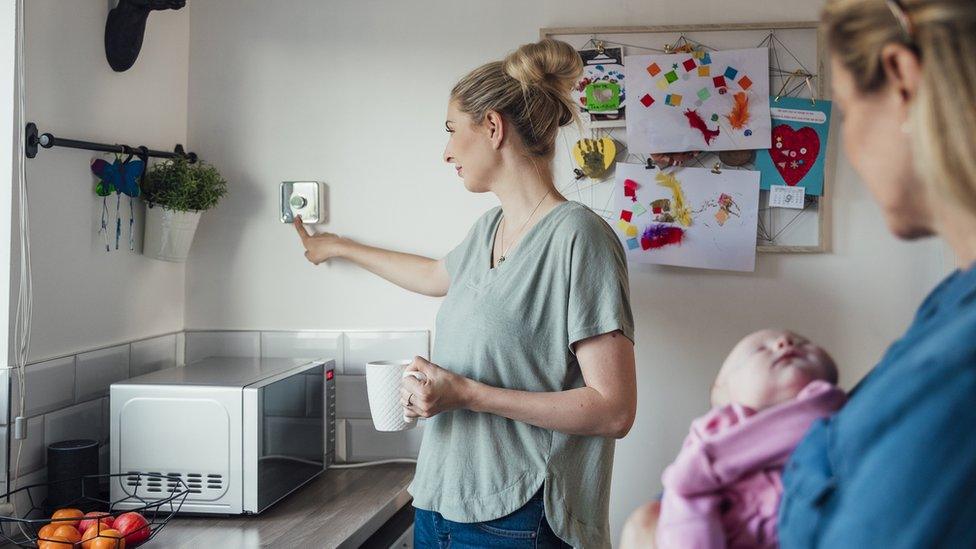
The cost of heating our homes is putting huge pressure on household budgets
A scheme to cut the energy bills of people in fuel poverty in Wales has failed to reach many of those now needing help, politicians have said.
A Senedd inquiry report said the Warm Homes Programme, external lacked the "scale, size and purpose" to meet people's needs.
Labour's Jenny Rathbone, who led the inquiry, called the programme "in many ways a failure", as ministers warned 45% of Wales' households, external could be in fuel poverty by the winter.
Welsh ministers welcomed the report.
The Welsh government defines fuel poverty as when people have to spend more than 10% of their income to heat their home properly.
Household budgets are facing huge pressure with rising inflation and hikes in energy prices a major factor.
UK inflation, the rate at which prices are rising, jumped to 9% in the 12 months to April, up from 7% in March - the highest rate for 40 years - and is expected to continue to rise this year.
Last month, typical energy bills in Britain rose from £1,277 to £1,971, after regulator Ofgem raised the price cap and are forecast to jump a further 32% when the cap goes up again in October.
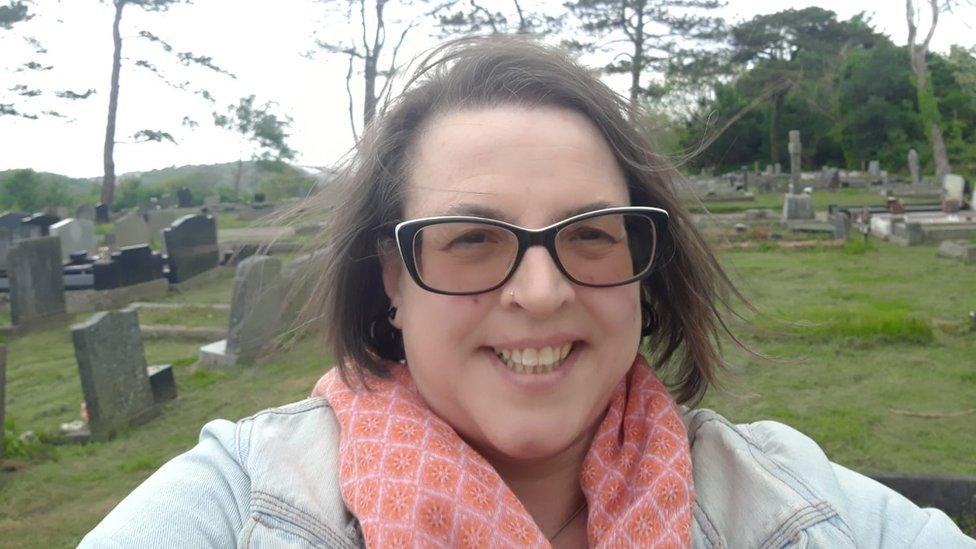
Michelle Hopkins says she knows "it's going to get worse"
Michelle Hopkins, from Swansea, is a full time carer for her husband Stephen, who is bipolar, and she shared her experiences as part of the evidence the committee considered.
She is on a pre-payment meter and said the family's energy bills have doubled.
"We're spending about £15 on the electric every week and, depending on the weather, £20 to £25 on the gas," she said.
"At the moment we are surviving.
"I do big clothes washes overnight, because from what I understand it's lower tariffs. And depending whether it's sunny, I take them to the laundrette. But that's gone up as well."
Michelle said her family tried to stay cheerful and not worry about even bigger energy bills in the autumn.
"I can't worry about it. I can't let myself slip into that darkness really because I've got to try to make ends meet and I know it's going to get worse."
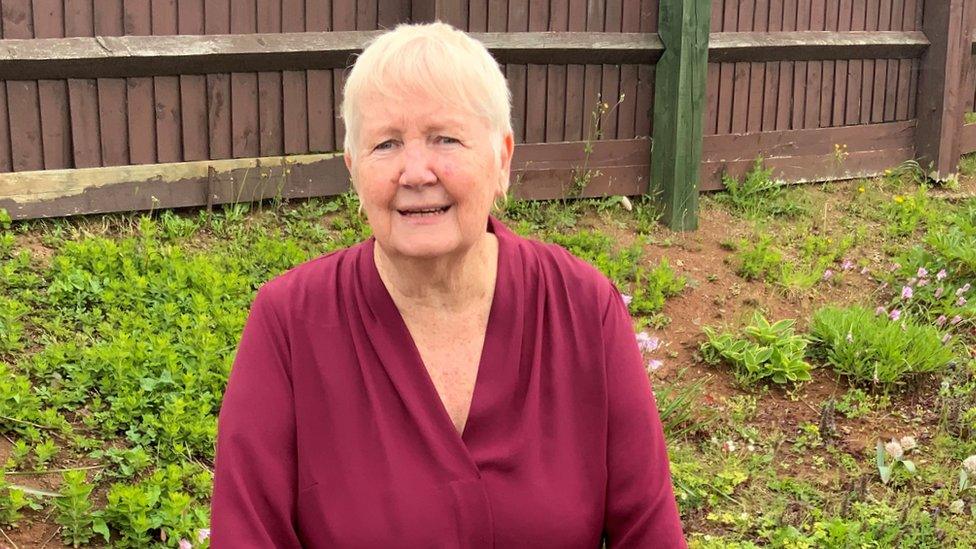
Carol Beaumont, 75, said she isn't enjoying life like she used to due to rising costs
Carol Beaumont, 75, from Newport, has seen her monthly energy and water bills rise by £71. She says the rising cost of food, energy and fuel means she's no longer enjoying life like she used to.
She says her social life is "non-existent", and has had to completely change the way she lives due to rising costs.
"In this day and age I think it's disgraceful that politicians are letting us live like this because it's not getting any better it's getting worse," she said.
"I don't put my heating on, that uses the gas. I try not to cook too much on the stove, I can just put it in the microwave, so I am changing the way I'm doing things."
'I've never had to live like this'
"In the shower I'm in, run the water round me twice, and I'm out, because that takes a lot of electric," Carol added.
"You live your life differently even just to three months ago. You're conscious of what you're spending and I've never had to live like that
"I used to enjoy going to the shops, having a look to see if there was anything there, a new blouse of a new pair of shoes. I haven't looked since these increases have come in. I can't afford it so I don't look."
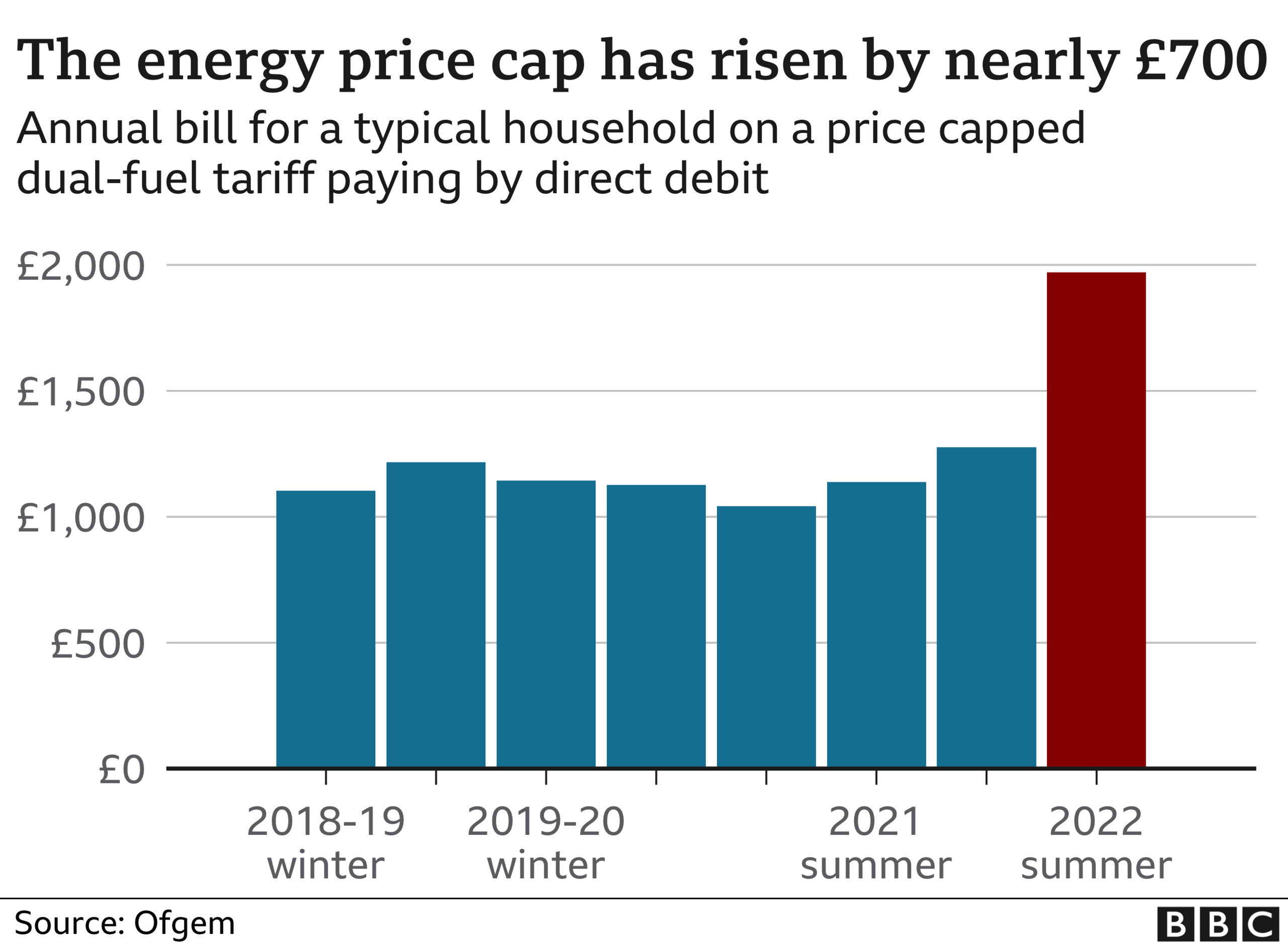
The Warm Homes Programme was created in 2011 to help people owning their home or living in private rented accommodation who are in fuel poverty or at risk of being so by installing free energy efficiency measures.
It was made up of two schemes:
Nest, which households across Wales could apply for and continues until March
Arbed, for targeted geographical areas, which ended in November
The Senedd's Equality and Social Justice Committee report, published on Wednesday, said the schemes were designed to offer systems such as boilers and solar panels as well as insulation and energy efficient lighting.
But the committee said installing fossil fuel systems was overwhelmingly prioritised over measures such as insulation.
Charity Care and Repair Cymru, external told the committee: "Simply replacing faulty boilers does not mean that a household will no longer struggle with fuel poverty if heat is still escaping from their properties and their energy bills remain high because of it."
The report called for a much greener approach to address climate change as ministers consider the next programme.
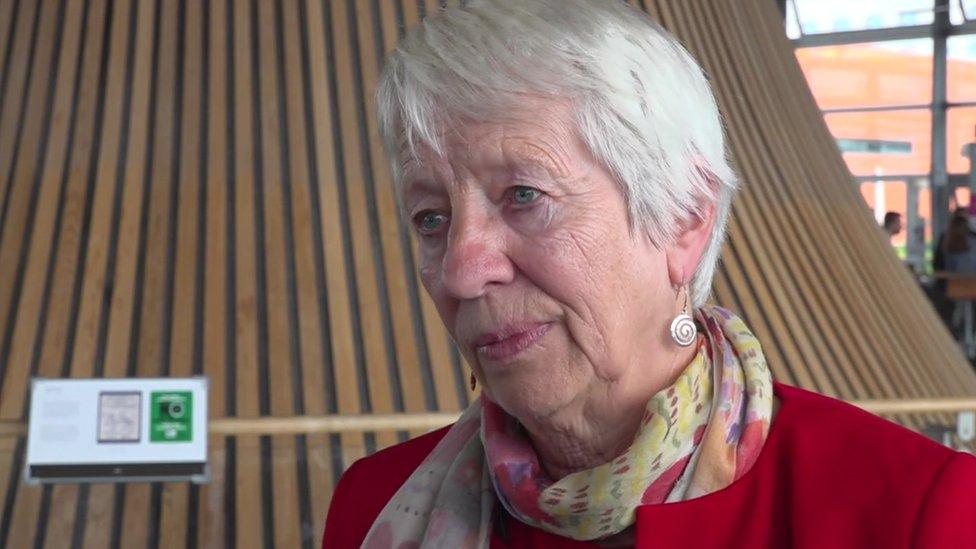
Jenny Rathbone says the next programme must be better at reaching those in greatest need
The report describes the schemes' eligibility criteria as "deficient, too restrictive and a poor indicator of being fuel poor, meaning that the programme did not always target the right people".
"This is likely to have left a number of fuel poor households ineligible for support."
The exclusion of properties with an Energy Performance Certificate, external rating of D is also criticised as they are thought to make up 50% of all fuel-poor households.
The report questioned the fairness of banning businesses of any size which happen to be operating from a domestic property from being eligible.
However, the reports said the Warm Homes Programme "undoubtedly made a lasting and positive difference to the lives of participants in the scheme" with about 67,000 homes now warmer and more energy efficient.
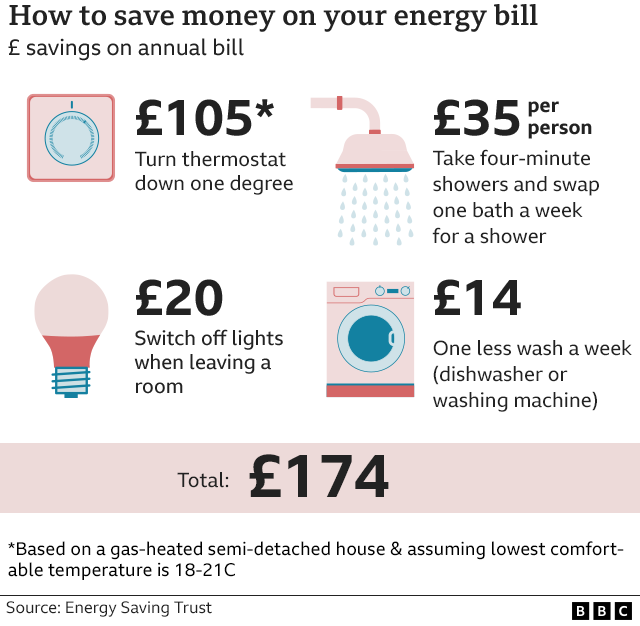
Jenny Rathbone, the Labour chairwoman of the committee, said the programme had "admirable aims" but the report showed it had been "in many ways a failure".
"The evidence shows the support this programme provided did not reach many people who now desperately need this help."
She said the next programme should be bigger, be better at targeting those in greatest need and "aim to be greener".
Janet Finch-Saunders, who speaks for the Welsh Conservatives on climate change, said the inquiry's verdict was "disappointing but not surprising", and called for "more direct action" from ministers.
"Labour's policies have continued to be out of touch with the needs of the people of Wales and its poor record on addressing fuel poverty speaks for itself," she added.
The Welsh government said: "Since October, we have invested more than £380m in support for lower income households to help them with this unprecedented energy and cost-of-living crisis.
"We will consider the committee's recommendations as we refine our policy proposals to tackle fuel poverty and decarbonise homes following the consultation on the next iteration of the Warm Homes Programme."